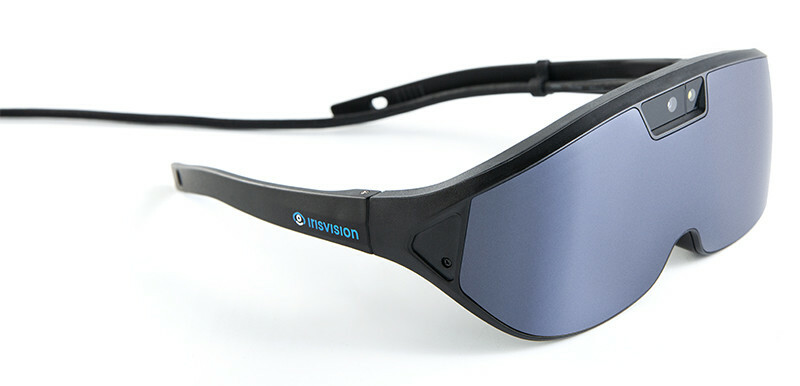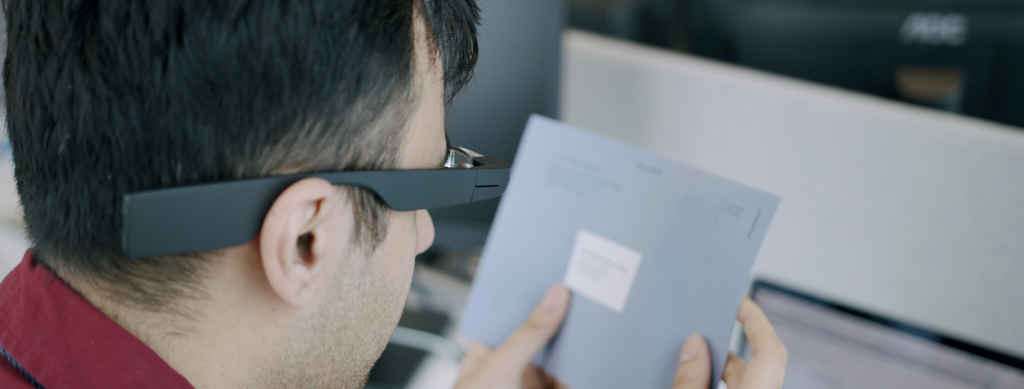Wearable Technology for Low Vision: Transforming How We Navigate the World
Wearable Technology for Low Vision: Transforming How We Navigate the World
Blog Article
Discover Advanced Assistive Tools for Individuals With Visual Disabilities
The landscape of assistive innovation for individuals with visual problems is developing swiftly, offering a series of innovative gadgets that improve autonomy and involvement (Braille displays and notetakers). From smart glasses that flawlessly merge aesthetic input with auditory advice to innovative navigating applications that redefine spatial understanding, these devices are reshaping possibilities. Furthermore, the current innovations in Braille technology and voice-activated systems dramatically add to availability. However, the implications of these advancements extend far past plain functionality; they challenge traditional assumptions of disability and self-reliance. What might this suggest for the future of inclusion and assistance?
Smart Glasses Innovations
Smart glasses represent a significant advancement in assistive modern technology for people with visual impairments. These cutting-edge tools integrate various features made to improve the individual's interaction with their setting. Equipped with sensing units and video cameras, smart glasses can record real-time visual details, which is after that processed and shared to the individual with audio comments or haptic feelings. This capability allows individuals to obtain immediate descriptions of their surroundings, improving their capacity to engage and browse with the world.
Moreover, improvements in expert system have actually even more improved the capacities of smart glasses. Equipment learning algorithms can identify faces, read text, and recognize objects, making them vital devices for everyday jobs. Customers can receive auditory hints that give context about their atmosphere, promoting independence and self-confidence.
Furthermore, the ergonomic layout and lightweight nature of numerous wise glasses make them suitable for extended use, making certain comfort while improving capability. As these tools remain to develop, they hold the prospective to change the means individuals with visual disabilities experience their everyday lives, linking the void in between accessibility and technology. The ongoing research study and advancement in this field pledge to increase the opportunities for clever glasses, making them an important element of modern assistive devices.
Navigating Application and Devices
Numerous navigation apps and devices have actually arised as essential sources for people with aesthetic problems, dramatically boosting their capacity to pass through unknown settings. These technologies leverage general practitioner performance, audio hints, and real-time data to provide customers with specific navigating help.
One famous example is the Aira app, which connects customers to experienced representatives who can provide visual summaries of environments and navigation assistance through a real-time video clip feed. This service enhances the customer's spatial understanding and confidence while browsing. An additional significant tool is Seeing Eye GPS, which offers voice-guided navigating and sights, making it possible for individuals to access vital details regarding their surroundings.

As technology proceeds to breakthrough, the advancement of much more sophisticated navigating devices guarantees to further encourage people with visual impairments, facilitating smooth movement and integration right into diverse settings. Such advancements contribute in promoting an extra inclusive culture.
Braille Innovation Developments
Recently, improvements in Braille modern technology have actually significantly transformed exactly how individuals with aesthetic disabilities accessibility details and engage with the world around them. The development of portable Braille displays has transformed reading by enabling individuals to attach wirelessly to tablet computers, smart devices, and computer systems. These devices convert text into Braille in real-time, allowing seamless interaction with digital web content.
Furthermore, innovative Braille printers have actually emerged, improving the production of responsive materials. Modern embossers are much faster and more efficient, permitting for the fast creation of Braille files and educational products. This efficiency minimizes the time and price connected with producing Braille resources, making them extra obtainable to organizations and colleges.
Furthermore, the combination of Braille with various other technologies, such as synthetic intelligence and artificial intelligence, has actually opened up new opportunities for tailored learning experiences. Voice acknowledgment and synthesis modern technologies can match Braille, offering a comprehensive strategy to details dissemination.
As the demand for inclusive education and workplace atmospheres grows, these technical developments play a critical function in empowering individuals with visual impairments, guaranteeing they have equivalent access to info and opportunities in different elements of life.
Wearable Tools for Independence
A growing range of wearable gadgets is enhancing independence for individuals with visual impairments, supplying cutting-edge remedies that enhance navigation and everyday living. Braille displays and notetakers. These gadgets utilize advanced technologies to offer real-time feedback and support, advertising autonomy in numerous settings

Wearable modern technology additionally consists of smartwatches that can be set with access features, making it possible for users to get notices, track their places, and even call for aid with the touch of a switch. Some devices incorporate artificial intelligence to evaluate the setting, offering sound descriptions of neighboring things or individuals.
Voice-Activated Assistive Solutions
Leveraging voice-activated assistive solutions has actually changed the landscape of support for individuals with aesthetic problems, offering hands-free communication and accessibility to a range of tasks. These modern technologies utilize natural language processing and expert system to enable customers to carry out daily tasks through basic voice commands.

Furthermore, recent advancements in voice recognition accuracy have enhanced the customer experience significantly, fitting diverse accents and speech patterns. This inclusivity guarantees that more people can take advantage of these technologies, cultivating a better sense of autonomy.
Final Thought
To conclude, the advancement of sophisticated assistive tools considerably enhances the independence and lifestyle for people with visual problems. Advancements such as smart glasses, navigation applications, Braille innovation, wearable gadgets, and voice-activated solutions collectively cultivate an even more inclusive atmosphere. These technologies equip customers to browse their environments with confidence and involve even more fully with find more info the globe, ultimately advertising better availability and level playing fields for individuals facing visual challenges.
The landscape of assistive technology for people with visual problems is advancing swiftly, providing a variety of ingenious devices that boost autonomy and engagement.Smart glasses stand for a my response significant improvement in assistive modern technology for individuals with visual disabilities. As these tools continue to develop, they hold the prospective to reinvent the means individuals with aesthetic impairments experience their day-to-day lives, linking the gap between access and modern technology.In recent years, improvements in Braille innovation have actually dramatically transformed exactly how people with aesthetic problems access information and engage with the globe around them. These technologies encourage customers to navigate their surroundings with self-confidence and involve more totally with the globe, ultimately advertising better access and equal possibilities for people facing visual challenges.
Report this page